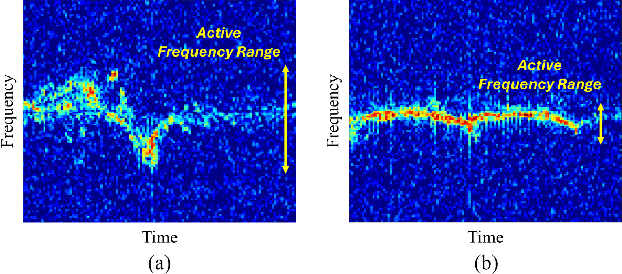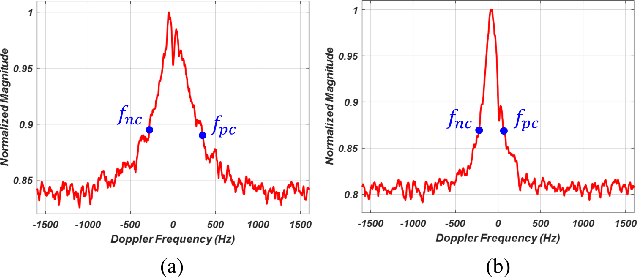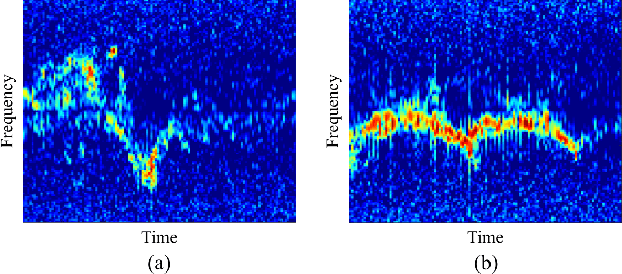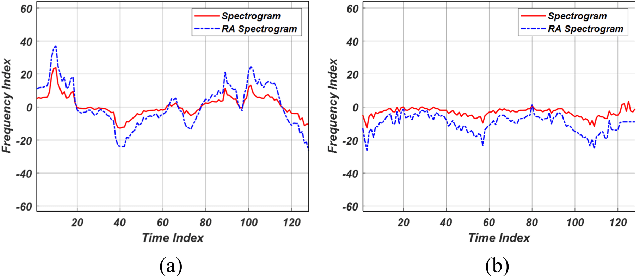Do-Hyun Park
Resolution-Adaptive Micro-Doppler Spectrogram for Human Activity Recognition
Nov 22, 2024



Abstract:The rising demand for remote-sensing systems for detecting hazardous situations has led to increased interest in radar-based human activity recognition (HAR). Conventional radar-based HAR methods predominantly rely on micro-Doppler spectrograms for recognition tasks. However, spectrograms frequently fail to effectively capture micro-Doppler signatures because of their limited linear resolution. To address this limitation, we propose a time--frequency domain representation method that adaptively adjusts the resolution based on activity characteristics. This approach nonlinearly transforms the resolution to focus on the most relevant frequency range for micro-Doppler signatures. We validate the proposed method by training deep-learning-based HAR models on datasets generated using the adaptive representation method. Experimental results demonstrate that the models trained using the proposed method achieve superior recognition accuracy compared with those trained using conventional methods.
Efficient Radar Modulation Recognition via a Noise-Aware Ensemble Neural Network
Nov 22, 2024



Abstract:Electronic warfare support (ES) systems intercept adversary radar signals and estimate various types of signal information, including modulation schemes. The accurate and rapid identification of modulation schemes under conditions of very low signal power remains a significant challenge for ES systems. This paper proposes a recognition model based on a noise-aware ensemble learning (NAEL) framework to efficiently recognize radar modulation schemes in noisy environments. The NAEL framework evaluates the influence of noise on recognition and adaptively selects an appropriate neural network structure, offering significant advantages in terms of computational efficiency and recognition performance. Furthermore, we employ feature extraction blocks to enhance the efficiency of the proposed recognition model. We present the analysis results of the recognition performance of the proposed model based on experimental data. Our recognition model demonstrates superior recognition accuracy with low computational complexity compared to conventional classification models.
 Add to Chrome
Add to Chrome Add to Firefox
Add to Firefox Add to Edge
Add to Edge